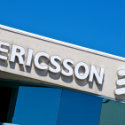Ailing Swedish vendor is now looking at merging Abentel with Spain's Dominion as a way of boosting profitability.

Ericsson is said to be in talks about merging its Abentel business in Spain with a local engineering services provider called Dominion as it continues to explore ways of restoring profitability following a sequence of disappointing results.
The deal would help to improve margins because of the high costs associated with Abentel's business, which provides fiber network rollout and maintenance services and relies on relatively skilled and highly paid employees, according to a report from Reuters.
Ericsson AB (Nasdaq: ERIC) acquired the company only 15 months ago but has put various activities up for review under the leadership of CEO Börje Ekholm, who took charge of it at the start of this year. (See Ekholm's Vision of Slimmer Ericsson Lacks Detail & Dazzle.)
Ekholm's main short-term goal is to boost Ericsson's operating margin to about 12% from a disappointing level of just 6.7% in 2016, excluding restructuring charges.
He is trying to find buyers for Ericsson's media and cloud hardware units, according to previous reports, and has already sold its power modules business to Asia's Flex. (See Ericsson Moves Closer to Media Business Sale – Report.)
Simon Leopold, an analyst with Raymond James, says exiting the loss-making media business would lead to a big improvement in the operating margin but does not think a deal is "imminent."
Ericsson is also exiting contracts that do not meet stricter criteria on profitability. Reuters reports that about 42 services contracts went up for review earlier this year, carrying a total value of about 7 billion Swedish kronor ($860 million) in terms of 2016 sales. So far, Ericsson is said to have addressed nine of these contracts in one way or another and consequently expects to see an annualized profit improvement of SEK140 million ($17 million).
As part of an earlier strategic push into fixed-line services, Ericsson spent between €20 million ($24 million) and €30 million ($35 million) on the acquisition of Abentel in mid-2016.
The business currently employs about 550 workers, whose jobs may be at risk if the merger with Dominion falls to come off, according to sources cited by Reuters.
Ericsson's employees already face considerable uncertainty following reports in August that it was looking to cut staff numbers by about 25,000 -- a figure that represents about 23% of the company's entire workforce at the end of June. (See Ericsson Plans 25,000 Job Cuts – Report.)
For all the latest news from the wireless networking and services sector, check out our dedicated mobile content channel here on Light Reading.
Ekholm's strategy is to focus Ericsson's resources on its mainstream business of building and managing telecom networks, shedding assets in non-core areas. But analysts have expressed concern that too much pruning will leave Ericsson ill equipped to battle its chief rivals Huawei Technologies Co. Ltd. and Nokia Corp. (NYSE: NOK).
Amid a slump in telco spending, Ericsson reported an 8% year-on-year drop in its sales for the recent April-to-June quarter, to SEK49.9 billion ($6.2 billion), and saw its operating margin shrink from 7% to just 0.6% over the same period, excluding restructuring charges.
While Huawei and Nokia similarly face difficult conditions in telecom equipment markets, Huawei has continued to grow its business and Nokia looks in far better health than Ericsson following its integration of the Alcatel-Lucent business it acquired in a €15.6 billion ($18.4 billion, at today's exchange rate) deal last year.
Nokia, which had an operating margin of 10.2% in the recent April-to-June quarter, believes most of its growth in the next five years will come from industries other than telecom, including the transportation, energy and public sector markets.
Huawei reported an operating margin of 9.1% in its 2016 annual report and is thriving partly on account of its large handsets business. It has recently turned its attention to the cloud and reckons it can challenge Amazon Web Services and Google in the market for public cloud services.
Ericsson's share price was trading down 1.1% in Stockholm at the time of publication and has lost about a fifth of its value since the start of the year, when Ekholm took control.
— Iain Morris, News Editor, Light Reading
About the Author(s)
You May Also Like











